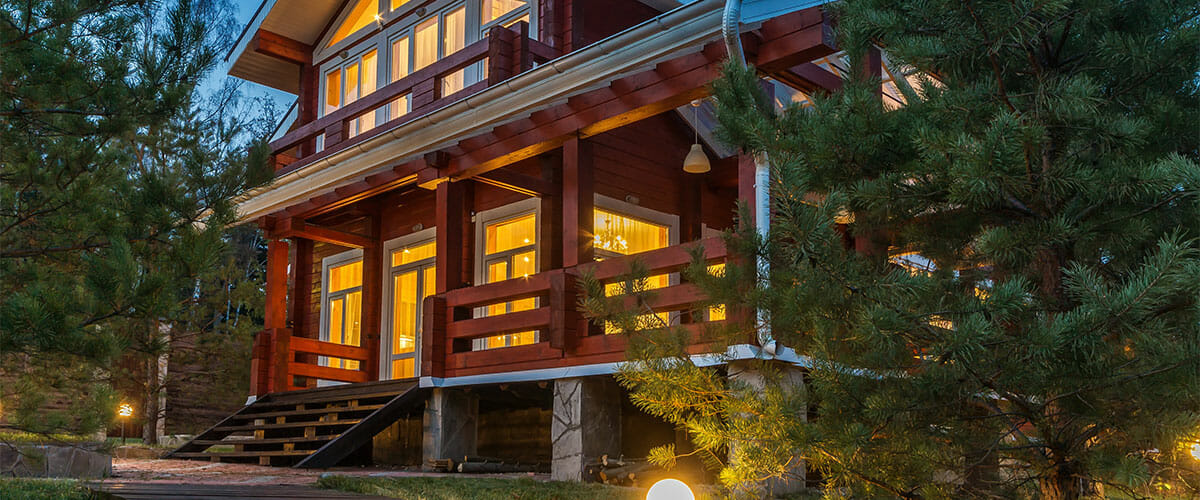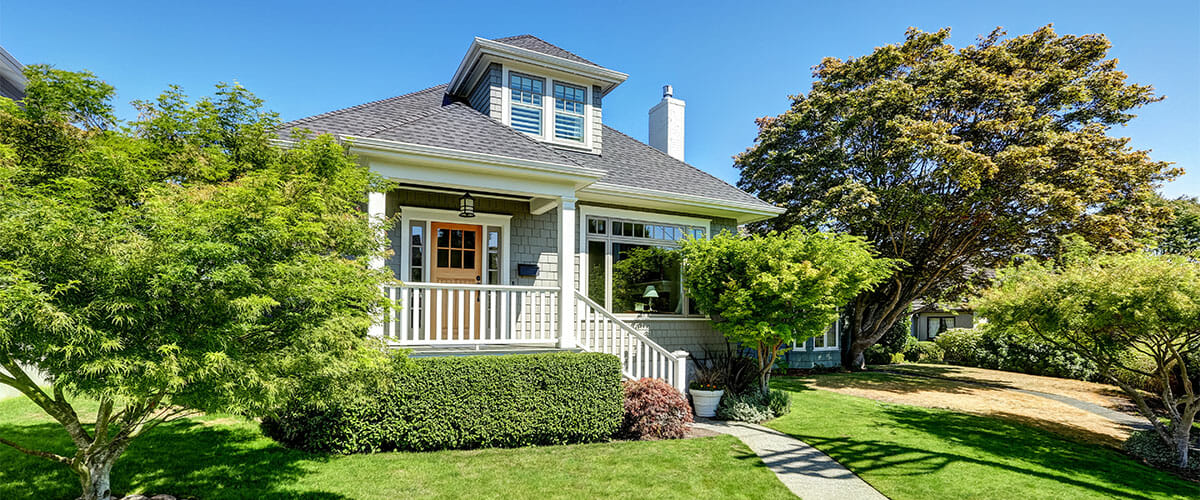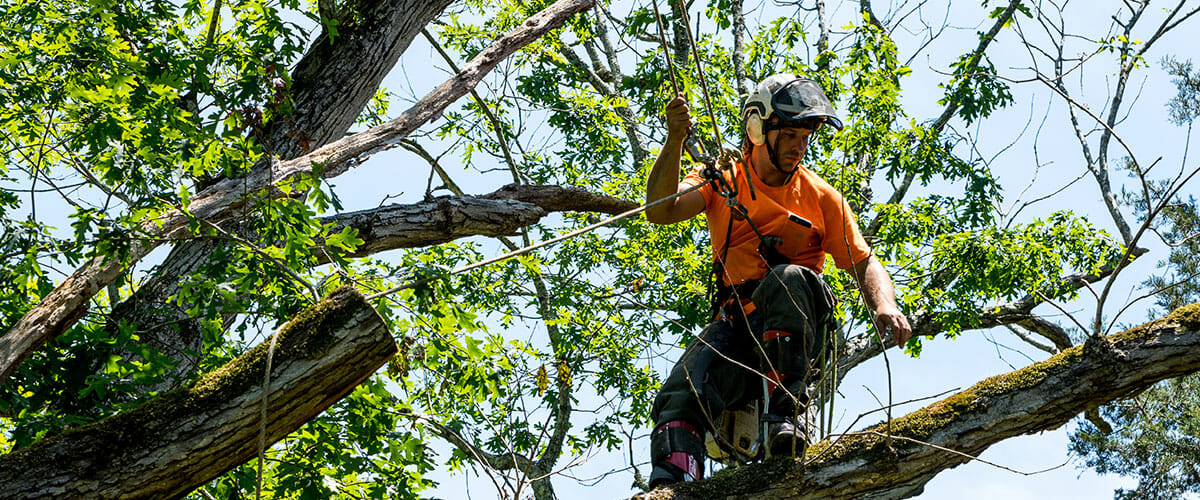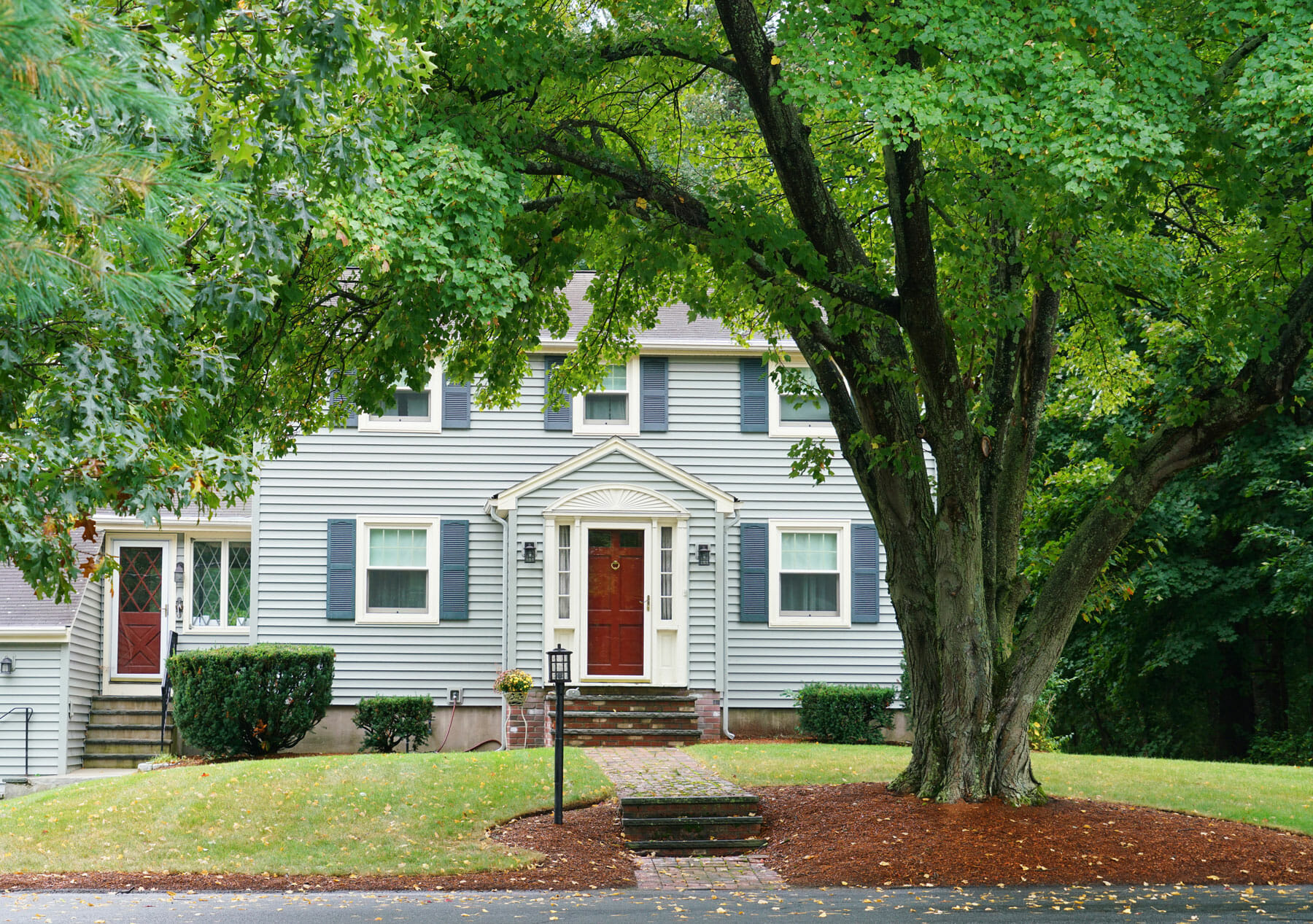Do Trees Increase Property Value?
In almost all cases, trees will add to your property and home value. Knowing which trees to plant, which trees to remove, and where to place your trees can help you maximize the value of trees on your property.
How Trees Affect Your Property Value and Save You Money
Trees on your property can be an asset in more ways than one. They add value while also saving you money.
Curb Appeal
Your property’s landscape and the trees surrounding your house play a significant role in your home’s value and curb appeal. According to The Council of Tree and Landscape Appraisers, a single mature tree can have an appraised value of $1,000s and even $10,000s!
Energy Savings
Trees not only improve and maintain property values, but they also provide energy savings. Strategically placing trees along your property can reduce cooling bills in the summer and heating bills in the winter.
Calculate the value of trees for your property
Understanding exactly how much value a tree adds to your specific property can be difficult. However, the Purdue University Department of Horticulture created this tree and landscape appraisal guide to help you.

Which trees should I plant to add the most value?
Plant trees that require little maintenance, help curb appeal, and won’t cause structural problems as they grow. The exact types of trees that fit this description will vary based on location. Specifically, it will depend on your USDA-defined plant hardiness zone.
USDA Plant Hardiness Zones
The United States Department of Agriculture defined hardiness zones across the country based on climate conditions. Knowing which USDA plant hardiness zone you live in will help you choose plants that can thrive in your home climate. In the Seattle-Tacoma area, our hardiness zone is largely 8b, meaning we can support a vast range of cold, hardy trees.
A professional arborist can also help you pick suitable trees for your home.

Where should I plant my trees to add the most value?
Where you plant certain species will affect the overall value of trees on a property. Your trees should add to your home’s look without covering it up or putting strain on its structure. Strategically locating your trees can have other benefits too.
Plant evergreen, coniferous trees, such as fir, pine, spruce, and hemlock, along the north side of properties to provide a wall against dominant winter winds and reduce drafts. This could save you money on heating costs.
Plant deciduous trees, maple, oak, and ash along the property’s south side to provide summer shade, thus reducing cooling costs. The trees will also create a comfortable area to utilize. Once they shed their leaves in the winter, they’ll allow direct sunlight to aid in warming your house, reducing heating costs.
Could trees hurt my property value?
While the answer to “Do trees add value to your home?” is largely yes, it can depend. Leaving dead or infested trees unattended in your yard could reduce your property value. Trees with roots that cause cracks to your home’s foundation, sidewalk, or plumbing system can also be detrimental to your home’s value.
Address these potentially threatening trees as soon as possible to protect your investment.

Maintain Your Trees for Maximum Value
You’ll get the most value out of your trees by keeping them healthy and looking great. And maintaining your trees doesn’t need to be a giant chore. Follow these three simple steps for maintaining the trees in your yard.
- Remove Dead Trees
- Plant New Trees
- Prune Your Trees Regularly
Consult A Professional Arborist
Do trees increase property value? Absolutely, so don’t underestimate the value of mature trees on your property! To take the best care of this valuable feature on your land, contact an arborist at Pacific Arboriculture. We have the tools, the know-how, and the experience to prune and maintain your trees without causing damage to the tree’s vital systems. Keep your trees healthy with help from Pacific Arboriculture.
Get a free quote today!

